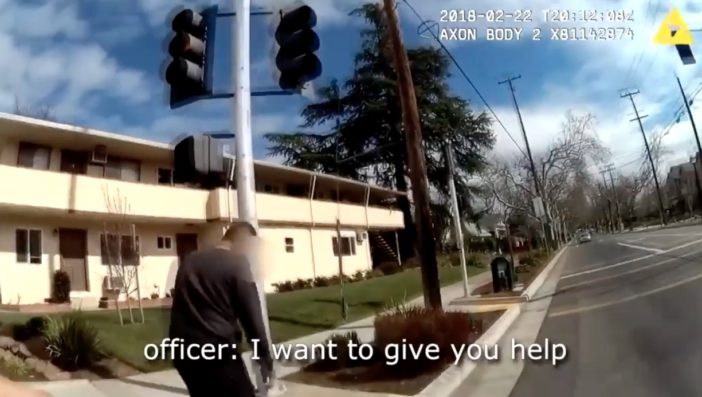There have been some horrific crimes committed in the past few months involving suspects who were undoubtedly mentally ill.
On Feb. 14, 2018, in Parkland, Fla., Nikolas Cruz came onto the Stoneman Douglas High School campus and unleashed a rampage with an assault rifle, ultimately killing 17 people and wounding another 17. Cruz had numerous prior interactions with both police and school officials. He is awaiting trial for the multiple murders.
On April 3, 2018, Nasim Aghdam was found sleeping in her vehicle by Mountain View, Calif., police officers. They discovered she was a reported missing person. After speaking with her, and then with the relatives who had reported her missing, the officers took no further action.
There were no red flags indicating she might be a danger.
The day before, Aghdam had gone to a gun range to practice her shooting skills. At lunchtime, she went to YouTube headquarters and shot three people before killing herself. Aghdam’s motivation for the shooting was alleged to be frustration over YouTube’s changes in algorithms that caused her YouTube channels to lose followers.
On April 18, 2018, in Ventura, Calif., Jamal Jackson entered a restaurant and inexplicably stabbed a father sitting at a table with his daughter on his lap. Ventura police had received calls regarding Jackson creating a disturbance. He was watched on surveillance cameras for approximately 20 minutes, apparently just sitting.
The department has been criticized for not dispatching a patrol unit.
In an interview with the VC Star, the department revealed that it had frequent contacts with Jackson over the last six months for disruptive behavior. The chief has promised a review of the decisions made.
Most recently, on April 22, 2018, Jeffrey Reinking went a shooting rampage at a Waffle House restaurant in the Antioch neighborhood of Nashville, Tenn.
Naked except for a green army jacket filled with extra magazines, he began shooting with an AR-15 rifle. By the time he was done, four people had ben killed and two had been injured.
Reinking was discovered to have a history of paranoid schizophrenia and contact with law enforcement. In July 2017, he was arrested for trespassing on the grounds of the White House. Allegedly he sought to speak with President Trump. Reinking is awaiting trial for murder.
All of these suspects probably suffered from some sort of mental illness. All of them had previous contacts with law enforcement. Some question how these horrific acts could have happened, and if police officers dropped the ball.
Any police officer in any community will tell you contacts with mentally disturbed persons is a daily occurrence.
Common is the homeless person walking down the street screaming or carrying on a conversation with voices only he or she can hear. Police officers respond to this type of call every day.
If the person is not an immediate threat to themselves or others, there is no cause to detain them. In many departments, referrals can be made to mental health professionals.
The paranoid schizophrenic who believes they are under surveillance by the FBI or other government agencies is a common call. Officers again assess and provide or refer what resources they can.
Relatives typically are at their wits’ end with a loved one diagnosed with bipolar disorder. The exhibited anger and rage keep getting worse and worse.
Sometimes officers get called out because a person is exhibiting religious or political extremist behavior — behavior that, for some reason, has scared people enough for them to call the police.
After investigating, officers often find the person has an arsenal that could outfit a small army. But they’ve committed no crime and have made no specific threats.
It’s not uncommon to walk away from these types of calls and your gut tells you, “It’s just a matter of time before we come back. Hopefully, no one gets hurt.”
In a free country, you can’t detain or arrest someone for what they might do. Mental health detentions in every state require some exigency that reflects a danger to others or to the individual themselves. That is a very high standard.
You can’t forget that police officers are not mental health professionals. They are not trained therapists or social workers. Yet they are held accountable when their judgment fails.
Training has improved over the years and some agencies work in partnership with mental health professionals when responding to these types of calls. Police officers do the best they can. No one wants to see anybody get hurt.
But at the end of the day, there are a lot of scary people out there and there’s only so much a police officer can legally do.
Joe is a retired captain. He can be reached at jvargas@behindthebadgeoc.com
 Behind the Badge
Behind the Badge



